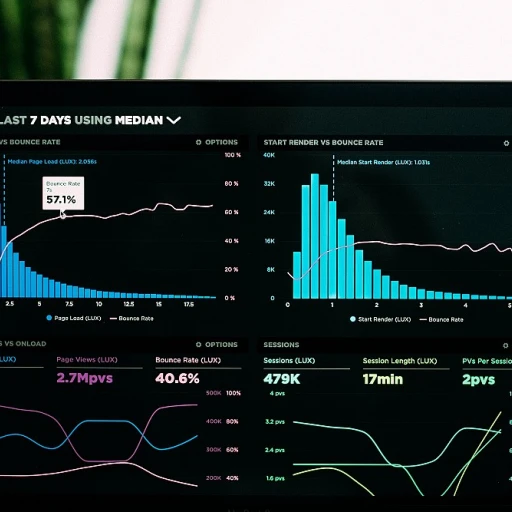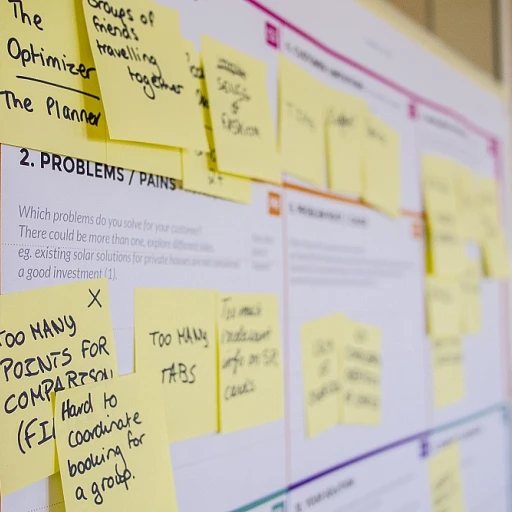
Identifying Bias in AI-Powered SEO Tools
Unveiling Hidden Prejudices in SEO Algorithms
As the digital ecosystem becomes increasingly AI-dependent, the tools we use for search engine optimization (SEO) are more sophisticated than ever. However, along with their advanced capabilities, there's an escalating issue of embedded bias that can skew data and, consequently, decision-making in SEO strategies. Although artificial intelligence streamlines processes and enables data-driven insights, it can also propagate underlying prejudices if not carefully monitored. These viewpoints often arise from the datasets on which AI models are trained, reflecting historical and societal inequalities.
To fully comprehend how bias sneaks into AI-driven SEO instruments, it's crucial to scrutinize the data these algorithms feed on. For instance, if the machine learning model for a keyword optimization tool was trained predominantly on content from a particular demographic, it might fail to recognize the importance of diverse keywords relevant to other audiences. This limited perspective would inadvertently prioritize certain contents in search results over others.
Digging deeper, issues of encoding biases within AI extend to the way they interpret searcher intent. An AI that's been fed data suggesting that individuals from certain backgrounds prefer specific types of content can lead to a reinforcement of stereotypes, rather than an equitable representation of diverse user needs.
Spotlight on Transparency and Accountability
SEO experts bear the responsibility to demand transparency from the developers of AI-driven SEO software. Such clarity on how these tools are developed, trained, and updated is essential to identify where and how biases might be introduced. This, coupled with regular audits of the decision-making processes within these AI systems, can function as a safeguard against unwitting prejudice impacting search result fairness.
In addition to methodical assessments, professionals within the SEO community are increasingly advocating for the employment of datasets and training procedures that uphold inclusivity. The implementation of guidelines and ethical frameworks that focus on diversity can help in attenuating the propagation of bias in AI-powered search enhancements.
Acknowledging and proactively managing these challenges sets the stage for the ongoing conversation about the ripple effects of algorithmic bias which, if left unchecked, can permeate through the fabric of digital marketing campaigns. Moreover, it paves the way for devising strategies to ensure more equitable SEO practices, ensuring a fair competitive landscape for all digital content providers.
The Ripple Effect of Algorithmic Bias in Digital Marketing
Understanding the Impact of Biased Algorithms on Online Visibility
The interplay between search engine algorithms and the content they rank is complex and ever-changing. When AI is introduced into SEO, the potential for algorithmic bias arises—where certain groups or ideas are either privileged or penalized, often without transparent reasoning. As algorithms learn from vast datasets, they can inadvertently perpetuate existing societal biases. This is particularly concerning because AI's decision-making process in SEO can affect what information is accessible and who gets to see it.
Case Studies: How Algorithmic Bias Skews Market Perceptions
- One study found that job-related searches often showed high-paying executive jobs to men more frequently than to women, suggesting a gender bias in job advertisement algorithms.
- Another report highlighted how certain 'healthy eating' searches were more likely to return results associated with Western diets, potentially marginalizing other cultural eating practices.
Quantifying the Ripple: SEO Bias by the Numbers
When it comes to quantifying the effect of this bias, the statistics are telling. Websites on the first page of Google receive 95% of web traffic, highlighting the importance of fair search rankings. Furthermore, research indicates that pages that appear higher up can see a click-through rate increase by as much as 30.8%. Clearly, even a slight bias in SEO can lead to significant disparities in website traffic—and, by extension, opportunities for businesses and individuals.
A Dynamic Landscape: The Continuous Evolution of Search Algorithms
As search engines evolve, so too does the landscape of SEO. Google alone updates its algorithms thousands of times a year, in efforts to improve user experience. However, with each change comes the potential for new biases to emerge. The dynamic nature of these algorithms necessitates ongoing vigilance from marketers and developers alike to ensure that biases are identified and corrected swiftly.
Mitigating Bias: Strategies for More Equitable SEO Practices
Implementing Ethical SEO Techniques
In the realm of digital marketing, the specter of algorithmic bias looms, potentially distorting the playing field. It is imperative for marketers to recognize and rectify biases within the SEO tools they employ. Crafting an SEO strategy devoid of unconscious prejudice is not just about fairness; it's also about the integrity and reliability of search engine rankings.
Conducting Regular Audits to Uncover Biases
One effective method for curtailing bias is through rigorous, routine audits of SEO practices. By meticulously analyzing data and the outcomes of search algorithms, businesses can detect and address inadvertent biases. Such audits should scrutinize keyword rankings, traffic sources, and user engagement across different demographics. This analytical process helps ensure that all user groups have equitable access to information and resources online.
Embracing Diversity in Keyword Optimization
Keyword optimization is a cornerstone of effective SEO. To mitigate bias, it's essential to expand the scope beyond the usual high-volume terms. Including diverse and long-tail keywords can cater to a broader audience and alleviate the issue of over-representation of certain demographics. Emphasizing inclusivity in keyword selection can lead to fairer visibility for all users searching for information.
Encouraging Inclusive Content Creation
The essence of content creation should be inclusivity. Content that resonates with a wide range of users not only enriches the user experience but also strengthens SEO success by appealing to a diverse audience. Ensuring that content reflects a variety of perspectives and backgrounds promotes fairness in search accessibility and visibility.
Adopting Transparent AI Tools
Technological transparency is a crucial step towards equitable SEO practices. Opting for AI-powered SEO tools that provide clear insights into how decisions are made can uncover and reduce hidden biases. When technology operates under a veil of secrecy, it is challenging to address fairness comprehensively. Therefore, SEO tools that offer transparency in their algorithms encourage more ethical SEO approaches.
As the significance of ethical SEO techniques and the push for AI equity in digital marketing grows, strategies that acknowledge and act upon these considerations become imperative. It's not only about being on top of the SERPs (Search Engine Results Pages) but also about paving the way for a more equitable digital landscape. For a deep dive into the intersection of AI and sustainable digital growth, discover insights on eco-friendly SEO.
Training AI with Diverse Data Sets
To profoundly tackle the roots of bias, training AI models with diverse data sets is vital. AI's understanding of language and context is shaped by the information it processes. Therefore, exposing AI systems to a variety of data from different cultures and languages can help mitigate ingrained biases. This leads to more balanced search engine behaviors that fairly reflect the world's diversity.
Building a Culture of Continuous Learning
Lastly, instilling a culture of continuous learning and adaptability within marketing teams can drive the quest for fairness in SEO. Staying informed about the latest developments in AI and SEO, and understanding the potential for bias, requires a consistent effort. Marketers must be willing to evolve and refine their practices in light of new insights and shifting web dynamics.
Ultimately, ensuring AI equity in SEO is a journey, not a destination. As digital marketers, we are tasked with the responsibility of steering this technology toward a future where fairness is woven into the fabric of search visibility. For the pioneers in the industry, these strategic recommendations offer the roadmap to a balanced and unbiased digital space.
The Future of Fairness in AI-Integrated SEO
The Pursuit of Equity in AI-Infused SEO
Charting the Course Towards Inclusivity in Search Algorithms
In the relentless evolution of search engine algorithms, the next frontier lies in their ability to transcend human-like biases and encode fairness into their DNA. AI, with its ability to process and analyze vast amounts of data, must be guided to recognize the value in diversity and the plurality of user intents. The meticulous calibration of algorithms to ensure equal opportunity in search engine rankings resembles a cartographer charting a previously unknown territory; it requires precision, foresight, and a deep understanding of the landscape. This includes continuously auditing and adjusting AI models to reflect a wide spectrum of user behaviors and needs.
Making AI Work for Everyone: A Collaborative Journey
Progress lies not just in algorithm tweaks but in a holistic approach to SEO practices. Making AI in SEO equitable requires industry-wide collaborations that bring together tech companies, SEO experts, and diverse user groups. It calls for open dialogues, sharing best practices, and setting benchmarks for fairness. The cross-pollination of ideas from different sectors can fuel innovative solutions that ensure AI serves the interest of a broad user base, thereby supporting the ethos of digital inclusivity.
Empowering SEO with Ethical AI Frameworks
As we step into a future where search engines act as gatekeepers to information, the introduction of ethical AI frameworks is imperative. Such frameworks would serve as a foundational pillar for developing AI technologies that are not only powerful and efficient but also unbiased and fair. By embedding ethical considerations into the technology's core, the digital marketing landscape can be shaped into one that reflects the true, unbiased interests of society. Moreover, statistics show that consumers are more likely to trust brands that demonstrate a commitment to fairness and equity, underlining the importance of ethical AI in SEO for both societal and commercial success.
Pioneering Transparent AI Systems in SEO
To truly advocate for equity in AI-driven SEO, transparency in how algorithms function and make decisions is fundamental. It requires search engines and tech platforms to unpack the 'black box' of AI, giving insights into how data is used and processed. This level of transparency not only breeds trust but also enables SEO strategists to understand and adapt to the intricacies of algorithmic changes. As we embrace this transparency, we encourage a culture of accountability where biases, once identified, are swiftly addressed, and rectification measures are put into practice.
Wrapping it Up: The Continuous Strive for Balance
Achieving equity in AI-integrated SEO is not a one-time fix but an ongoing journey of balance and reassessments. As artificial intelligence continues to refine and sophisticate, the commitment to fairness needs to be just as dynamic. Embracing the journey wholeheartedly can lead to a digital ecosystem that is just, unbiased, and equitable, where businesses of all sizes have a fair chance to thrive, and users have access to broad, impartial information.













